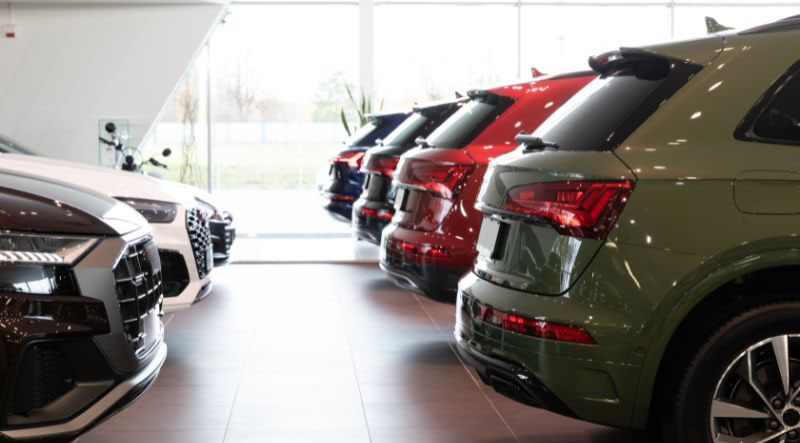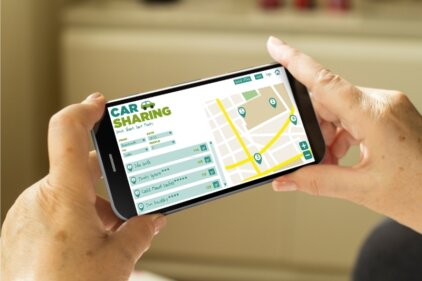When it comes to buying a new car, timing is everything. There are several factors to consider before making this significant purchase. First and foremost, you need to evaluate your financial situation. Assess your budget, including your monthly income and expenses, to determine if you can comfortably afford the costs associated with buying a new car. Additionally, consider any upcoming major life events or changes, such as a new job or a growing family, that may influence your decision.
Another important factor to consider is the condition of your current vehicle. If your car is constantly in the repair shop and the costs are adding up, it may be a clear sign that it’s time to invest in a new car. On the other hand, if your current car is reliable and in good condition, you might be able to hold off on buying a new car for a little longer.
Lastly, think about your long-term goals. Are you planning to keep your next car for several years, or do you prefer to upgrade frequently? If you’re looking for a long-term investment, buying a new car might be the right choice. However, if you enjoy having the latest features and technology, you might consider leasing or buying a used car instead.
The best time of the year to buy a new car
Timing is crucial when it comes to getting the best deal on a new car. One of the best times to buy is at the end of the year when dealerships are eager to clear out their inventory and make room for the next year’s models. Typically, dealerships offer generous incentives, discounts, and rebates during this time to attract buyers. Additionally, car manufacturers often release their new models in the fall, which means you can find great deals on the previous year’s models.
Another excellent time to buy a new car is during the holiday season. Many manufacturers and dealerships offer special promotions and discounts during holidays such as Thanksgiving, Christmas, and New Year’s. Take advantage of these seasonal sales to get the best possible price on your new car.
How to take advantage of end-of-year car deals
End-of-year car deals are a great opportunity to save money on your new car purchase. To make the most of these deals, it’s essential to do your research and plan ahead. Start by researching the models and features you’re interested in. Compare prices from different dealerships and look for any ongoing promotions or discounts. This will give you a baseline for the average price of the car you want, allowing you to spot a good deal when you see one.
Once you’ve done your research, reach out to local dealerships and inquire about their end-of-year promotions. Don’t be afraid to negotiate and ask for additional discounts or incentives. Remember, dealerships are motivated to sell their remaining inventory before the new year begins, so they may be more willing to negotiate.
Lastly, be prepared to make a decision quickly. End-of-year car deals are time-sensitive, and the inventory may be limited. If you find a great deal that meets your requirements, act fast to secure it before someone else does.
The importance of researching and comparing prices
Researching and comparing prices is crucial when buying a new car. With the wealth of information available online, it’s easier than ever to gather data on pricing trends and average costs. Start by visiting manufacturer websites, where you can find the suggested retail price (MSRP) for each model. Keep in mind that the MSRP is just a starting point and that dealerships often offer discounts and incentives.
Next, visit online car shopping platforms and dealerships’ websites to compare prices. Look for any ongoing promotions or special offers that can help you save money. Additionally, consider reaching out to multiple dealerships to get quotes and negotiate the best possible deal.
Remember that price isn’t the only factor to consider. Take into account the car’s features, reliability, and long-term value when making your decision. Sometimes, paying a little extra for a higher-quality vehicle can save you money in the long run.
Tips for negotiating a better deal on a new car
Negotiating a better deal on a new car requires preparation and confidence. Start by researching the average price for the car you want, including any extra features or options. Armed with this information, you can confidently negotiate with the salesperson.
When negotiating, be firm but polite. Clearly communicate what you’re looking for in terms of price, features, and financing options. Don’t be afraid to walk away if the dealership is unwilling to meet your requirements. There are plenty of other dealerships and opportunities to find a better deal.
Consider using pre-approved financing to strengthen your negotiation position. Having a loan offer from a bank or credit union allows you to compare the dealership’s financing options and potentially negotiate a lower interest rate.
Lastly, be willing to compromise. While it’s important to get the best possible deal, it’s also essential to find a car that meets your needs and preferences. Finding the right balance between price and features is key.
Financing options and incentives to consider
When buying a new car, it’s important to explore your financing options and consider any incentives available. Start by researching different lenders, including banks, credit unions, and online lenders, to find the best interest rates and loan terms. Compare offers and choose the one that suits your financial situation and goals.
Additionally, be on the lookout for any manufacturer incentives or rebates. Car manufacturers often offer cashback incentives, low-interest financing, or special lease deals to attract buyers. These incentives can significantly reduce the overall cost of your new car and make it more affordable.
Before committing to a financing option, carefully read and understand the terms and conditions. Pay attention to the interest rate, loan duration, and any additional fees or charges. If you have any questions or concerns, don’t hesitate to ask the lender or dealership for clarification.
The pros and cons of buying a new car versus a used car
Deciding between buying a new car or a used car is a significant consideration when timing your purchase. There are pros and cons to both options that you should weigh before making a decision.
Buying a new car offers several advantages. You get the latest features, technology, and safety advancements. Additionally, new cars often come with manufacturer warranties that provide peace of mind. However, new cars also come with a higher price tag and can depreciate quickly in the first few years.
On the other hand, buying a used car can save you money upfront. Used cars have already experienced the majority of their depreciation, which means you can get a good deal on a lightly-used vehicle. However, used cars may require more maintenance and repairs, and they may not have the latest features.
Ultimately, the decision between buying a new or used car depends on your budget, preferences, and long-term goals. Consider your priorities and evaluate the pros and cons of each option before making a final decision.
How to determine if your current car needs to be replaced
Before buying a new car, it’s essential to evaluate the condition of your current vehicle. Consider the following factors to determine if it’s time to replace your car:
- Frequent and expensive repairs: If your car is constantly in the repair shop, and the costs are adding up, it may be more cost-effective to invest in a new car.
- Safety concerns: If your current car lacks essential safety features or has significant mechanical issues that compromise your safety, it’s time to consider a replacement.
- Changing needs: If your lifestyle or transportation needs have changed, such as starting a family or needing more cargo space, your current car may no longer meet your requirements.
- Fuel efficiency: If your current car has poor fuel efficiency and you find yourself spending a significant amount on fuel, upgrading to a more fuel-efficient model can save you money in the long run.
Take the time to assess your current car objectively and weigh the costs and benefits of keeping it versus buying a new one. Ultimately, your decision should be based on what makes the most financial sense and aligns with your needs and priorities.
Making an informed decision about when to buy a new car
Deciding when to buy a new car requires careful consideration of various factors. Assess your financial situation, evaluate the condition of your current vehicle, and think about your long-term goals before making a decision. Timing can play a significant role in getting the best deal on a new car, so take advantage of end-of-year sales and holiday promotions.
Research and compare prices to ensure you’re getting the best possible deal. Negotiate with confidence and explore financing options and incentives to make your new car purchase more affordable. Consider the pros and cons of buying a new car versus a used car and determine if your current car needs to be replaced.





